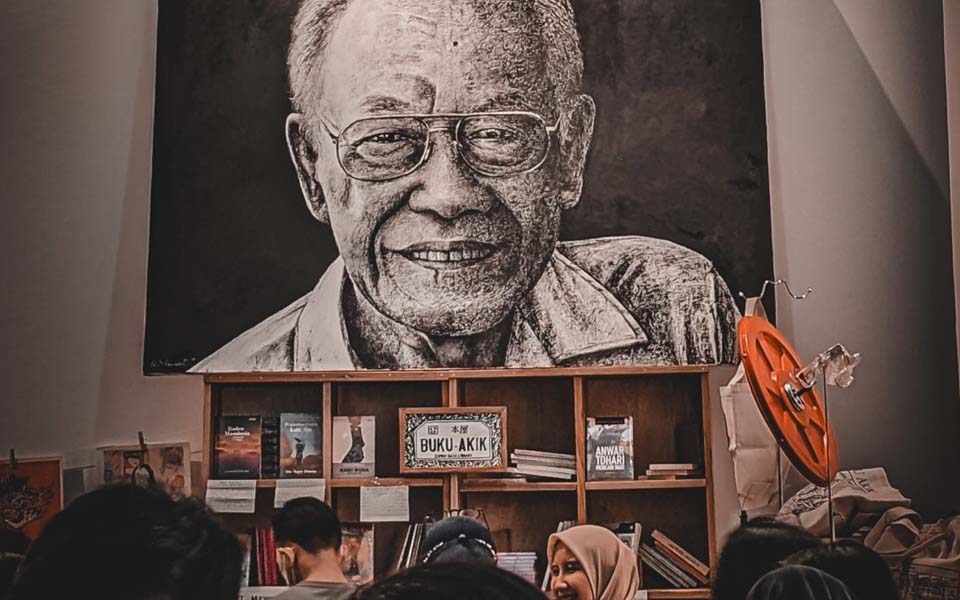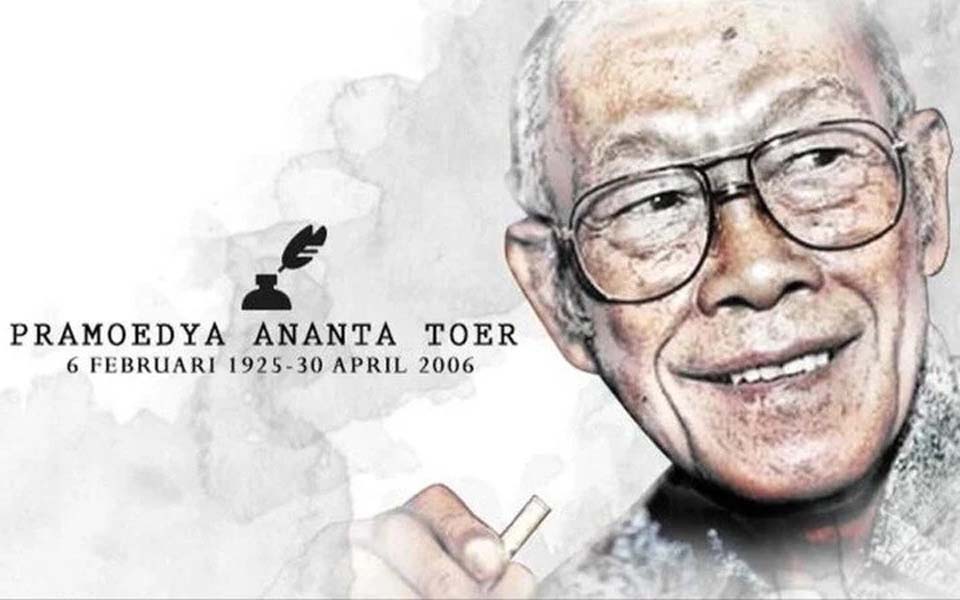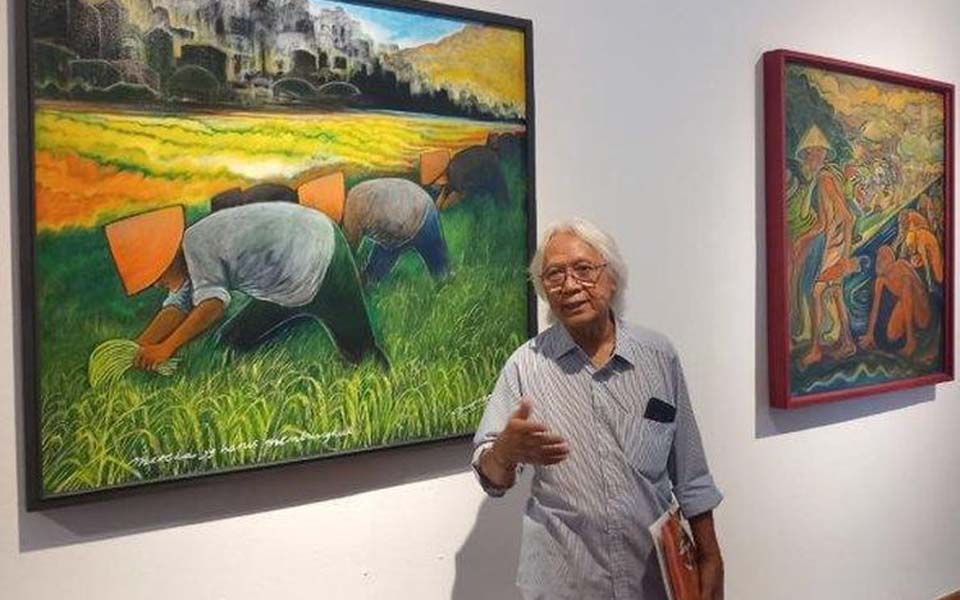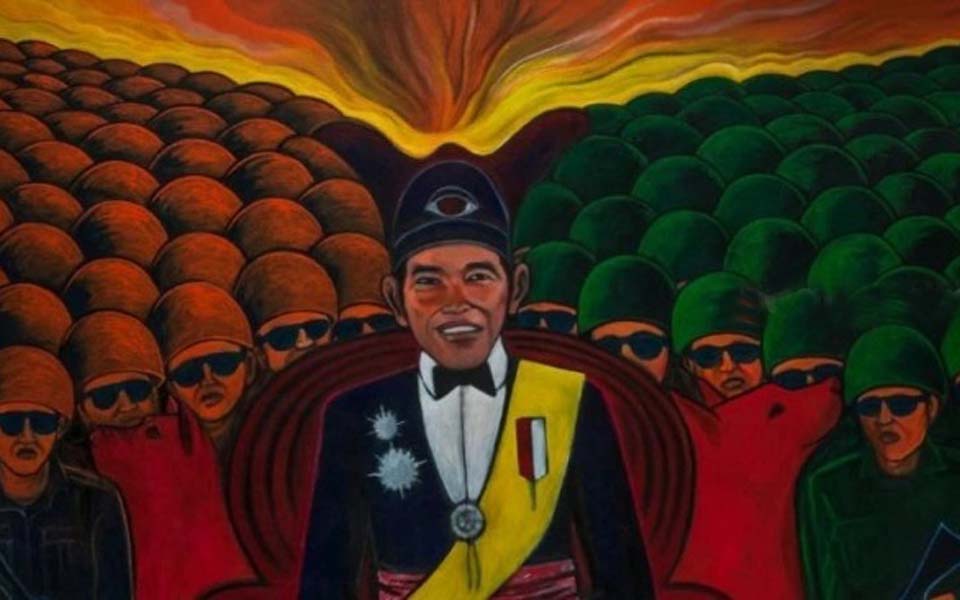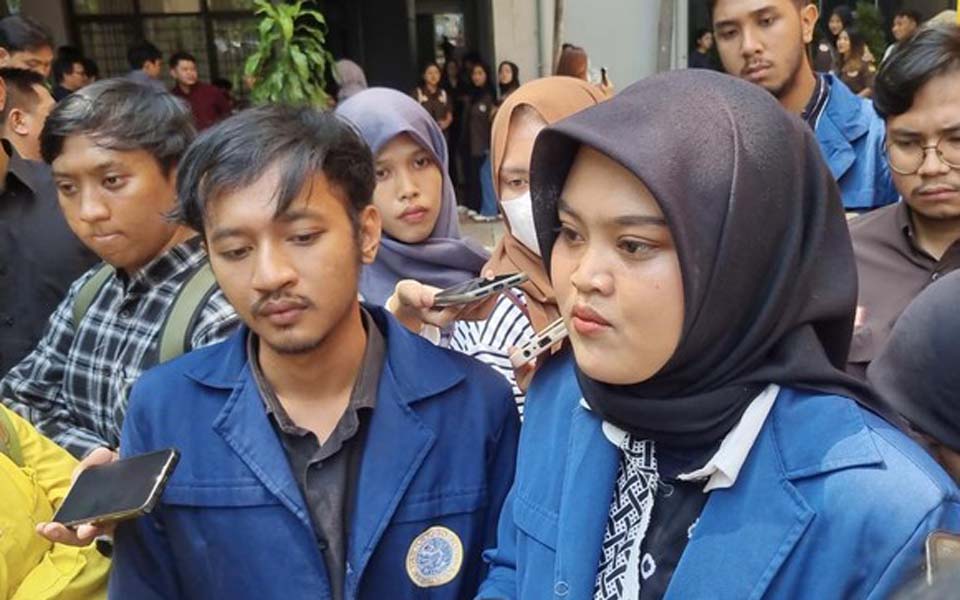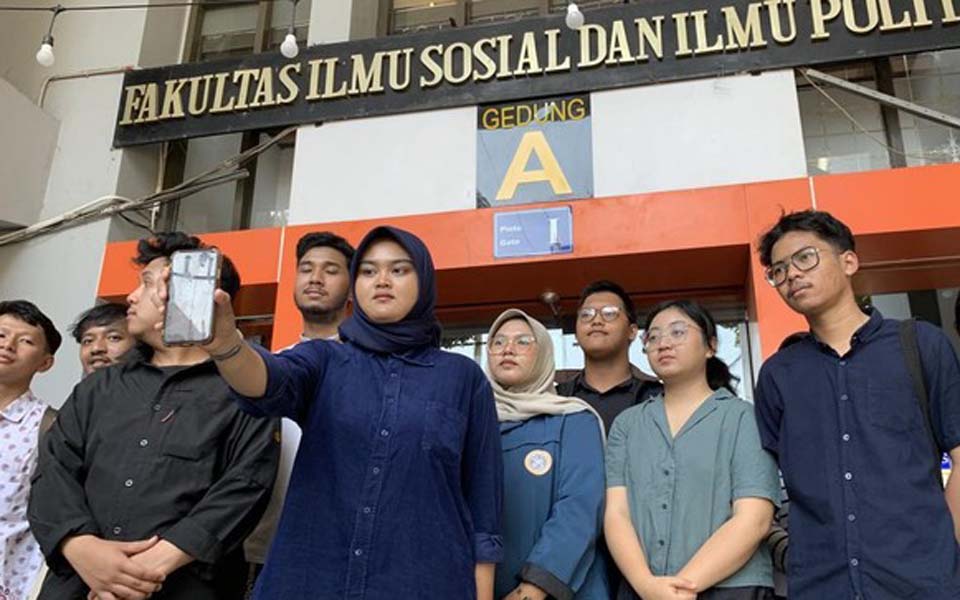The momentum of commemorating the 100th anniversary of Pramoedya Ananta Toer today, February 6, 2025, must be a momentum to ensure that the state no longer imprisons citizens simply for producing works or speaking out peacefully as Pram once experienced.
From the perspective of human rights (HAM), Pram is a symbol of freedom of thought, speech, opinion and works. His literary works were once banned by the state which imprisoned the great Indonesian writer in one place after another, including on Buru Island.
"Half of Pram's life was spent in prison, the other half outside prison with a baseless negative stigma. Pram's freedom at that time was not a gift from the state, but at the insistence of many parties who spoke out for his release", said Amnesty International Indonesia (AII) Executive Director Usman Hamid.
"Pram's struggle was a struggle to achieve a dignified human life and maintain freedom of thought and work, but that was taken away by the state", said Hamid.
"Young people love and are inspired by Pram's works. They must continue Pram's struggle by continuing to speak out loudly against the injustices committed by the state. Pram's freedom was taken away by the state. This shows how strong writing is as an expression of basic freedoms that should be protected by the state", Hamid added.
Amnesty International is one of the international institutions that actively campaigned for Pram's release during his imprisonment on Buru Island.
One of the campaigns carried out by Amnesty International was to include Pram in the list of prisoners of conscience in the Amnesty Newsletter entitled Prisoners of Conscience in the September 12-19, 1972 edition.
"The newsletter contained Pram's profile as a prisoner of conscience or someone who was imprisoned simply for speaking out peacefully", said Hamid.
The document contained an in-depth explanation of Pram's case along with other prisoners of conscience from South Africa, Spain, Taiwan, Cuba, Tanzania, Czech Republic, Paraguay, Namibia, Turkey and Hungary.
In 1972, Amnesty sent letters to members of the Amnesty movement throughout the world and included Pram's case as a major campaign of the organisation.
Amnesty International sought his release by asking hundreds of thousands of its members around the world to pressure the Indonesian government to release Pram. He was finally released in 1979.
Pram was even about to be killed extrajudicially by the state while serving his sentence on Buru Island. When Pram was about to be murdered, another political prisoner told Pram's family to pass the news on to Amnesty International. Pram eventually survived the extrajudicial killing attempt.
In an interview with the mass media, Pram's daughter Astuti Ananta Toer said that Basuki Effendy, an actor-director who was also a political prisoner at the time, told her that her father was going to be murdered. He asked Astuti to immediately contact Amnesty International regarding the plan to kill Pram.
Not only was he imprisoned. While on Buru Island, Pram was also forbidden to write, at least until 1973. Access to pencils, pens and paper was removed. Amnesty International had sent a typewriter to Buru Island for Pram so he could write again.
"Amnesty received information that the first typewriter given by a French philosopher, Jean-Paul Sartre, to Pram was broken. Therefore, Amnesty International sent a typewriter to Pram which at that time was taken to Buru Island via an officer from the International Red Cross or ICRC", added Hamid.
At that time only the ICRC had access to Buru Island.
Through the commemoration of a centenary since Pramoedya's birth, the state must also release all prisoners who have been imprisoned only because of their peaceful expression, including those who have been charged under the Criminal Code (KUHP), the Information and Electronic Transaction (ITE) Law, the Blasphemy Law, the Treason Law and the Pornography Law.
According to data from Amnesty International Indonesia, from August 2019 to April 2024 there were 128 prisoners of conscience (PoC) from 82 cases in Indonesia.
"Only by releasing all prisoners of conscience can the country be said to have learned from its dark past. We will continue to call for the release of prisoners of conscience as we once did for Pram", said Hamid.
"Borrowing Pram's message, today's young generation must also be fair in their thoughts and must continue to write so that they are not lost in society and from history. Fair in their thoughts and actively writing to uphold human rights in Indonesia", Hamid concluded.
[Translated by James Balowski. The original title of the press release was "100 Tahun Pramoedya Ananta Toer: Negara Harus Jamin Kebebasan Berekspresi dan Kemerdekaan Berpikir, Bebaskan Semua Tahanan Nurani di Indonesia".]





